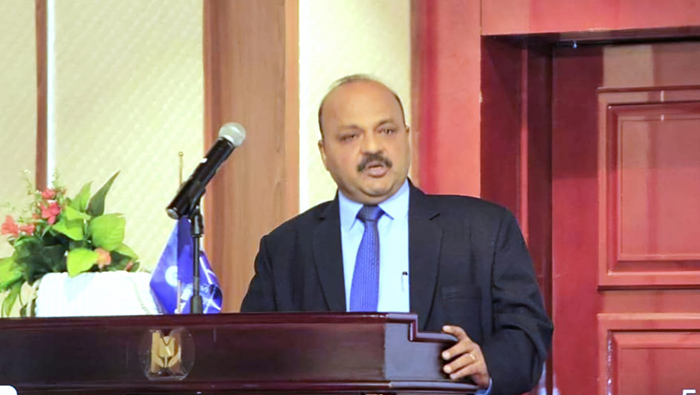
A US Federal Court has blocked President Donald Trump’s tariff, a major setback to his trade policies. The Manhattan-based three-judge court of International Trade said the US Constitution gave Congress exclusive powers to regulate commerce with other nations, but did not give the President unilateral authority to impose tariffs on all countries. However, the US Court of Appeals granted a temporary stay of the order.
Speaking to The Times of Oman, R. Madhusoodanan, a former SBI Official and a financial expert based in Muscat, said, the court ruling has cheered the financial markets; however, with the temporary stay, the tariffs are back now. Typically, such vital decisions like changes in tariffs need to be approved by the Congress, but were bypassed by the President, according to the petitioners. After taking office as President in January 2025, Trump announced his tariff plan against most countries of the world, citing that the US is being treated unfairly in global trade, creating an imbalance in tariffs. His stance was that if they charge us, we charge them.
He said, the higher tariffs announcement has caused several economic, political, and strategic impacts on both Advanced Economies (AEs) and Emerging Market (EM) Economies of the world. It has disrupted the established supply chains and slowed economic growth.
Despite the 90 days pause on the tariffs announced on 9th April 2025 for countries excepting China and China on 11th of May 2025, after the de-escalation of the trade tension meeting held in Geneva between the two countries, the Trump administration continued to fuel global economic uncertainty with its unpredictable trade policies. This was evidenced by the announcement of a 50% tariff on the European Union(EU) effective from June 1st and later shifted to July 9th 2025. Reports also indicated that he threatened a 25% tariff on Apple if it continued to manufacture iPhones overseas.
R. Madhusoodanan said, no countries are insulated from the adverse impacts of the tariff threat. The global economy has been affected due to the tariffs and retaliatory tariffs announcements. There are signs of economic slowdown in the US, China, among other countries. The US is well aware of the long-term impact of the tariffs, i.e. a possible downturn in the GDP growth along with a slowdown in the US exports and consumption. If continued, it will push up inflation and hurt employment in the US. The Chinese economy has also been affected by the tariff war. Its export to US fell sharply, impacting the country’s enormous manufacturing sector. China had to roll out fresh economic stimulus to the affected sectors. Large-scale incentives and subsidies were given to companies to make their products and services more competitive in the global markets. China also had to introduce many austerity measures to tide it over the situation arising out of this.
The Emerging Market(EM) Economies are also affected, but have taken steps to reduce their dependency on the US and have formed new trading blocs, he said.
Earlier, the US has made it clear that the tariff rates will soon return to a “reciprocal “ level if countries don’t reach trade agreements during the 90-day pause. The disruptive trade agenda will not help any country, for that matter. Now with the ruling of the US Court, I believe there remains a possibility of a mutually beneficial long-lasting resolution that can restore the stability of global trade, R. Madhusoodanan said.